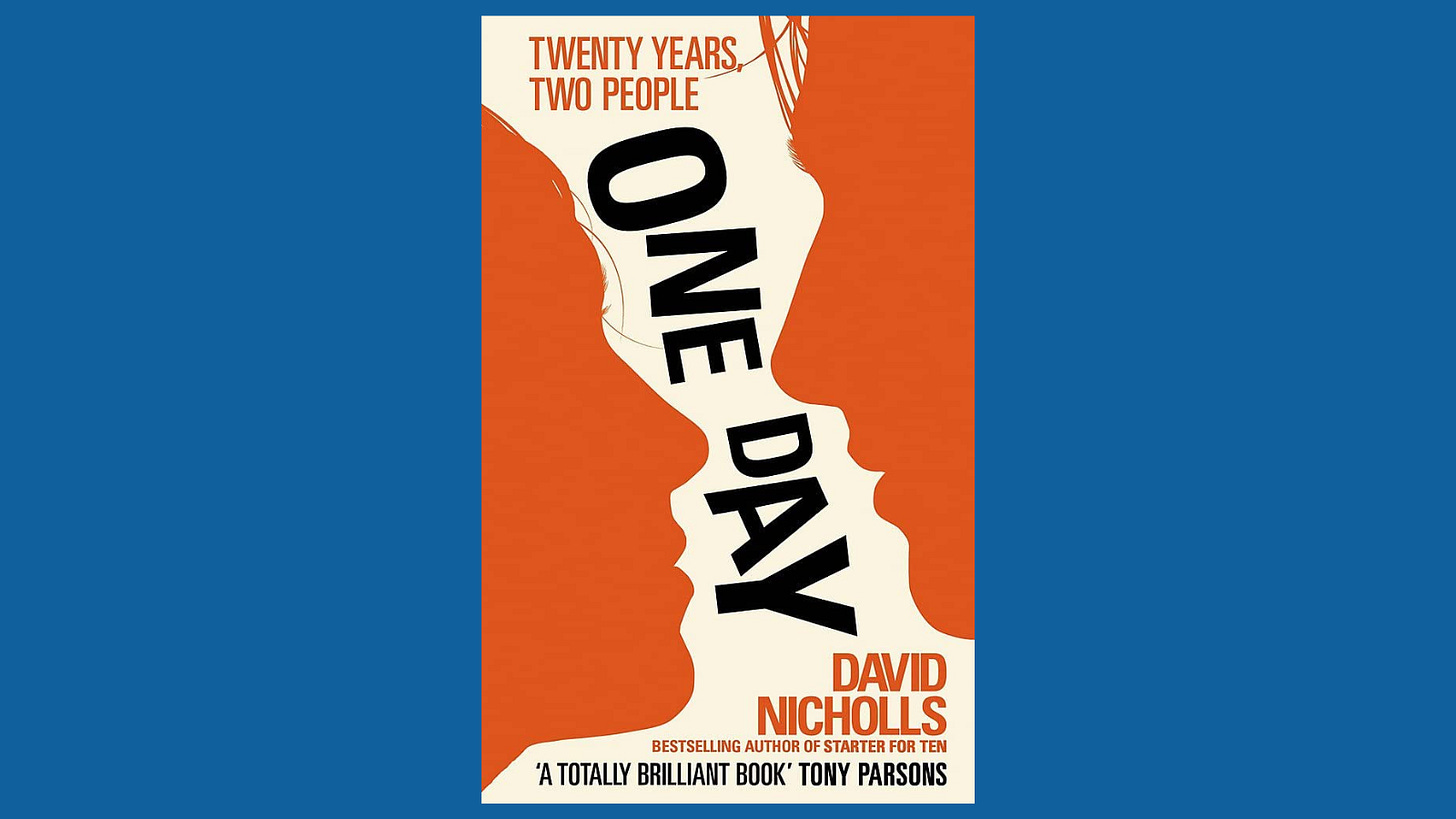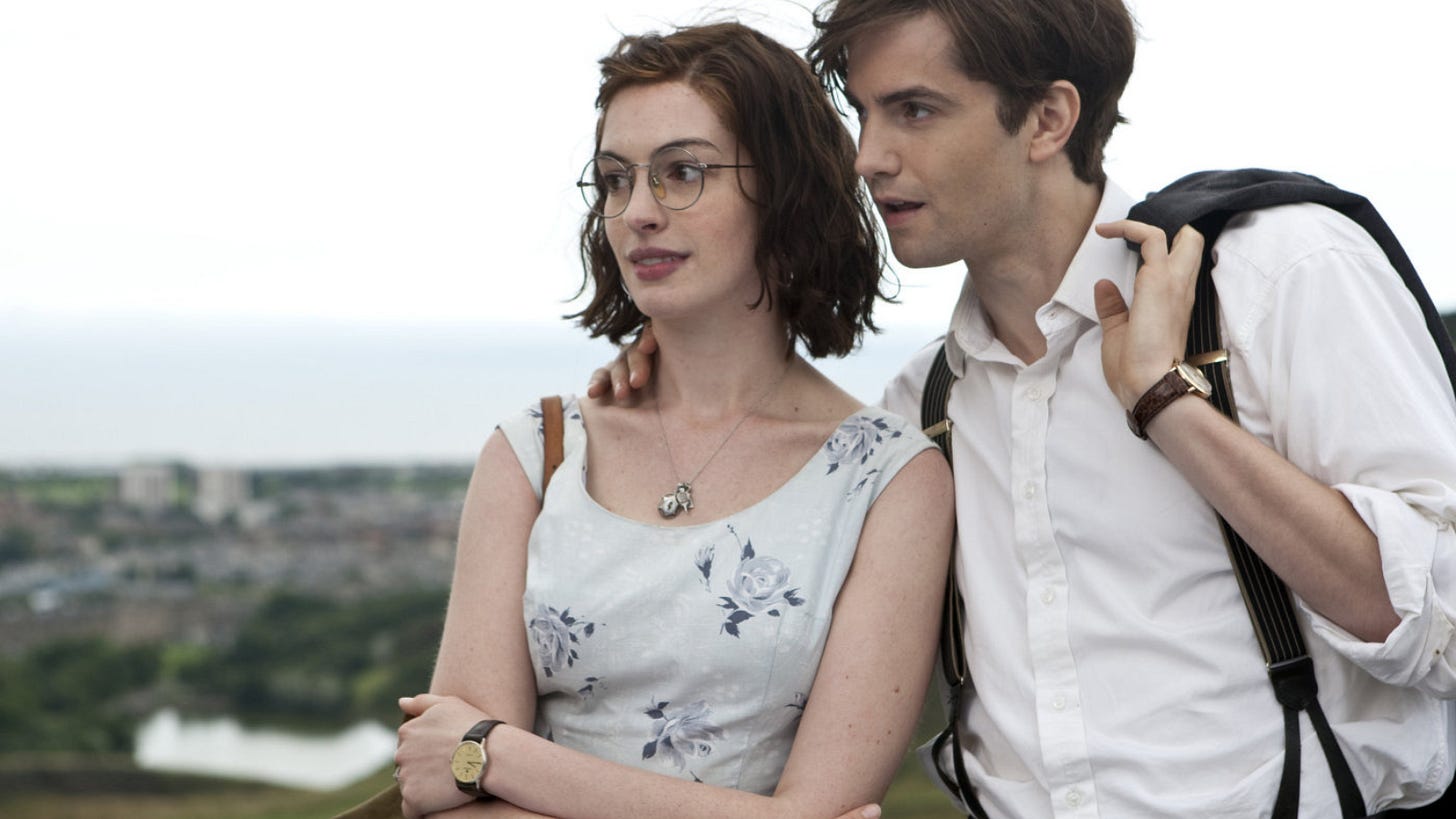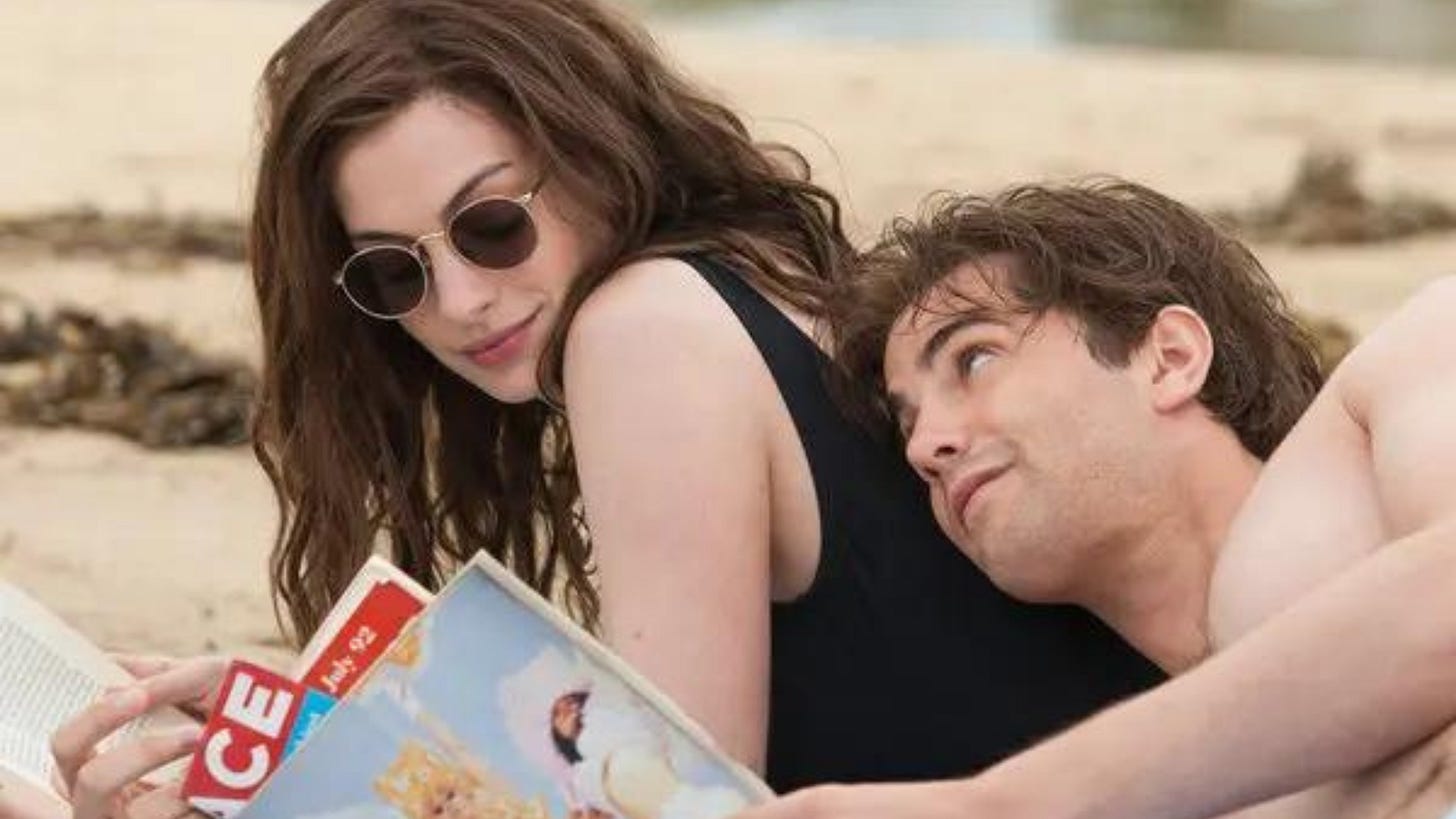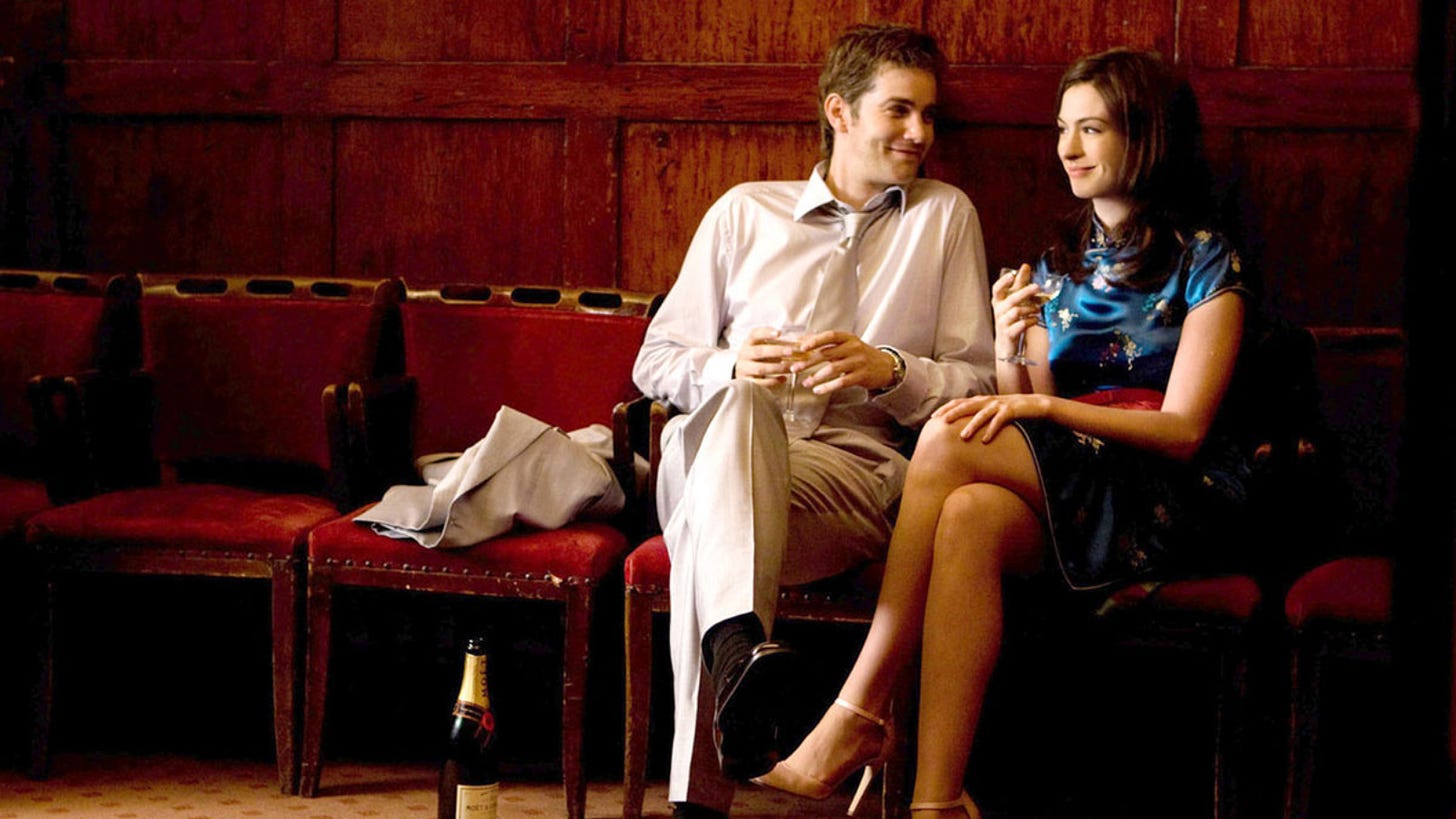How To Write a Love Story
#3 One Day by David Nicholls
How do you write a love story?
I’ve been asking myself this question for a long time.
Well, at least since the age of thirteen when I first started scribbling my feelings into the margins of my school notebooks. Before you ask, no I don’t still have them and yes I can recommend a good shredder.
In my later teens, I switched from notebook margins to Word Processor. I spent countless hours attempting to put into words the very dramatic (at least to me) highs and lows of my bruised teenage heart. The problem was I could never make the words emulate the way I felt in real life. So I became stuck in a vicious cycle - write, rewrite, delete, repeat - never content with the relationships I had created on the page.
Now as a fully-grown, late-twenty-something adult (gasp), I sometimes return to these frantically typed documents, and each time I am reminded of two things:
One, my 16-year-old self was unhinged.
And two, writing about love (or anything that remotely resembles it), in a way that actually makes the reader feel something, is really hard.
Which brings me to this week’s newsletter. I want to know what my stories are missing and find out if there is some kind of secret recipe for writing a great love story.
Naturally, I haven’t had time to read every great love story since I sent the last newsletter, so I’ve gone for the next best thing.
One Day by David Nicholls was published in 2009. It stayed on the Sunday Times' top ten bestseller list for ten weeks and has sold over two and a half MILLION copies. It was also turned into a major film starring Anne Hathaway and Jim Sturgess - I watched this last night and can confirm the book is one-hundred times better than the film. I didn’t notice it as much when I was younger, but what is that accent?
The love story of Emma Morley and Dexter Mayhew melted the hearts of millions all around the world. So what about it is so special? Let’s get into it.
‘NOT QUITE A LOVE LETTER, BUT NEAR ENOUGH’
The beginning of every love story is different. There are different characters, different settings, different times, and different plots, but what they all have in common is a moment where everything changes, where the narrative is elevated and the stakes are raised. This moment could be a scene, a sentence or even just a handful of words, but whatever it is, it makes the reader go from being an impartial bystander to someone who is emotionally invested in the narrative.
When Romeo confesses to Juliet, that renouncing his name or being killed by the Capulets would all be worth it if he could be with her, the mood of the story changes. The intensity of their love for each other is made clear. This is a love to die for. The stakes have been raised and the audience’s attention is captured completely.
Right at the end of chapter three, there is a moment like this in One Day. By this stage we know that Emma and Dexter have almost slept together once and since have been close friends. Their friendship involves Emma writing long letters and Dexter sending back one-line responses scribbled on postcards from his travels. The two characters are charming and relatable, but at this point, the friends-to-lovers storyline feels inevitable and I’m wondering why so many people rave about this book.
Then, we arrive at chapter three. Most of it is Dexter writing a drunken letter to Emma from a hostel in Agra, India where he has gone to see the Taj Mahal. On a side note, if you ever go to Agra to see the Taj, make sure you go as early as possible and get a guide. For one reason or another, I’ve been twice and the second time I went my friend and I spent most of the day hustling through sweaty crowds, queuing and trying to find shade – not quite what you picture when you go to see one of the most beautiful buildings in the world.
Anyways, I digress. Dexter’s letter is full of confessions and builds up to a grand gesture where he invites Emma to drop everything and come out to India and join him. He writes things like:
‘At precisely midday you stand directly under the centre of the dome with a red rose in one hand and a copy of Nicholas Nickleby in the other and I will come and find you, Em. I will be carrying a white rose and my copy of Howards End and when I see you I will throw it at your head.’ (pg. 47)
And …
‘The main thing is that I think about you a lot, that’s all. Dex and Em, Em and Dex. Call me sentimental, but there’s no one in the world that I’d like to see get dysentery more than you.’ (pg. 48)
David Nicholl’s ability to weave dry British humour into his writing saves the letter from being cringy and instead, it simply is just very romantic.
Then, BAM. I get to the end of chapter three and I am genuinely shook. Dexter ends the letter, tucks it into the copy of Howards End that Emma has gifted to him, and ends up leaving the book with the letter behind on a random sofa.
Moments later, twenty-three-year-old Heidi Schindler finds it. After reading it, she remarks that it is ‘not quite a love letter, but near enough’ and tries to find an address so that Emma can receive it. She fails.
The chapter ends with:
‘The paperback copy of Howards End is still on the shelf in the spare bedroom, forgotten and unread, with the letter tucked neatly just inside the cover, next to an inscription in small, careful handwriting that reads;
To dear Dexter. A great novel for your great journey. Travel well and return safely with no tattoos. Be good, or as good as you are able. Bloody hell, I’ll miss you.
All my love, your good friend Emma Morley, Clapton, London, April 1990’ (pg.51)
This scene is so devastatingly romantic, that I feel like I will forever be thinking about that lost letter, hidden in Howards End on Heidi’s bookshelf in Frankfurt, never to be read by the person it was intended for.
Other than shaking my hopelessly romantic heart to its core, this scene also sets the stage for the whole ‘ships passing in the night’ nature of their romance (more on that later), and it pulls the story out of mediocre love story territory. I’m going to go out on a limb here and say, that this One Day wouldn’t be half the book it is without this scene. It is one of the first signs that this one is not like the rest, this love story is different. This love story is actually going to succeed in what it’s meant to do. It’s going to make you (the reader) feel things.
SPEAKING OF SCRABBLE
Getting the reader invested in the love story and building dramatic tension is all well and good, but it wouldn’t be possible without laying a strong foundation for the relationship. In the case of One Day, Nicholls lays this foundation by building a shared discourse between Emma and Dexter that grows with the characters throughout the story.
Nicholls returns to phrases to create a sense of familiarity and continuity. In the letter that’s never sent Dexter writes, ‘The main thing is that I think about you a lot, that’s all. Dex and Em, Em and Dex’ (pg. 48). Later, Dexter uses the same phrase to express how he feels to Emma when he says, ‘I know. I just thought it might be a good idea. Dex and Em, Em and Dex, just the two of us’ (pg.344).
The characters also regularly return to the same topics and jokes, which shows us how, like all great friends, they have developed their own shared language over time. When they go on holiday to Greece at the beginning of their relationship, Dexter announces, ‘Rule Number Five. No Scrabble’ in retaliation to Emma’s list of rules about boundaries and nudity. Years later, on holiday together in North Yorkshire, Dexter says, ‘I know it sounds weird, … But I wouldn’t mind a game of Scrabble.’
These dialogue threads are so simple, yet they make a world of difference to the narrative. It shows us that the Nicholls truly understands who these people are and what their relationship is. He has spent time carving them out and making them whole beings that we can fall in love with and root for and connect with.
SHIPS PASSING IN THE NIGHT
The last thing I’d like to touch on is the tropes (cliché), which despite ourselves we can’t help but love. Why do you think Colleen Hoover has done so well? The woman is using all the tropes.
One Day taps into several familiar tropes of romantic fiction. Unlike a lot of writers who throw them in, because they’re guaranteed to make the book more commercially appealing, Nicholls appears to have really thought these through, masterfully blending the tropes to create an un-put-downable concoction of suspense, drama and romance.
First off, the book is full of classic ‘will-they-won’t they’ moments that create a delicious sense of suspense throughout the story. The night after their graduation in Edinburgh, skinny-dipping on the Dodecanes Islands in Greece, deep in the depths of the maze at Tilly Killick’s wedding, to name a few.
To further antagonise the reader, Nicholls makes sure that timing is never their strong suit. When one is finally ready to love the other, the other has conveniently decided to get into a relationship with a comedian called Ian, whose rubbish jokes only add fuel to the flame. For most of the novel, Emma and Dexter are ships passing in the night. Two doomed souls, continuously missing out on happiness. The beauty of this charade is that when they finally do get together, Nicholls has his readers (me) jumping for joy around the room.
The concept also feeds into the timeless friends-to-lovers fantasy. The idea that your soulmate has been right in front of you all along. It goes without saying, that this is completely overdone in popular culture. Yet, there's something about it that is so satisfying that I doubt we’ll ever be rid of it. The one-day-a-year structure of One Day somehow manages to have a fresh take on this tired trope simply because we get a full timeline of Emma and Dexter's relationship. We are with them from start to finish and there’s something about seeing a person’s whole life laid out on the page which just hits different. The same could be said for Marley and Me. If we hadn’t witnessed that adorable dog's whole life, would we have cried as much at the end? Probably not.
MASSIVE SPOILER ALERT!
Last, but not least. She dies. In a Shakespearean and quite honestly triggering turn of events, Emma Morley gets hit by a London bus. Death is a love story trope as old as time. Think about Wuthering Heights, Anna Karenina, Brokeback Mountain, and Titanic, what do they all have in common?
The scene where Emma is killed is shocking and incredibly annoying, but there’s a reason that writers are encouraged to ‘kill your darlings’. It raises the stakes, and in combination with all the other tropes, it’s another reason that this love story will stand the test of time.
SO, WHY WAS THIS BOOK PUBLISHED?
To go back to my original question: how do you write a great love story? There are three key things we can learn from One Day.
You need a big moment to hook your reader and get them invested in the relationship. Dexter's undelivered letter does this, it grabs our attention and makes us want to fight for the relationship.
Creating authentic individual characters is not enough, you need to build their relationship with one another and create a shared discourse through memories, language, dialogue threads etc. The relationship needs to resonate with your reader for them to invest in it.
Don’t shy away from tropes. After all, you’re writing a love story and a little cliche never hurt anyone. Just make sure they work for your story and you're not just putting them in for the sake of it. Think about what your fresh take is. What is the twist that will make your friends-to-lovers story stand out?
READ ALONG WITH ME
If you enjoyed deep diving into the storytelling of One Day, why not read along with me? Next time I’ll be talking about why we love Greek mythology and covering The Song of Achilles by Madeline Miller.
I’m open to your recommendations! If you have a suggestion for a book you’d like me to do an editorial review on, you can comment on the official Nat’s Notes TBR List.









